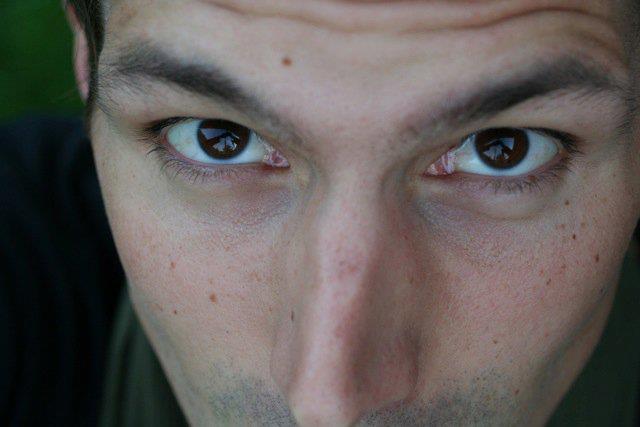On overt and covert racism
28 april 2013 | In Emotion theory Hate Crime Moral Psychology politics Psychology | 1 CommentThe face of racism is often characterized by a swastika crudely painted on a wall, or a group of young white men screaming out their hate and anger towards a member of a hated group. The consequences of racism is often portrayed as a beaten up, dead body. This, most of us think, must stop. Presumably, open, convinced, ideologically driven racists thinks so to. Presumably, as with any kind of war, they regret that it had to come to this.
These expressions of hate and prejudice are highly problematic, and the long term effects, especially if they are not swiftly and forcefully dealt with, should not be underestimated. But what would happen if they disappeared? Would the problem av everyday racism – expressed in mild aversions, the unlikelihood of succesful encounters, covert discrimination – diminish as well, or would it, in fact, become worse? The question is this: what is the relationship between overt and covert instances of racism?
If we want to point out why racism is a bad idea, we are well served to point to these worst cases – the lynching of James Bird, the murder of Matthew Sheppard, and we do that rather than point to a job applicant narrowly losing out to another due to the foreign sounding nature of his or her name.
Yet the latter kind of situations are in all likelihood much more common and their effects much more widespread in modern racism. Most people overtly believe in the value of equality, but still suffer from unconscious prejudices. We can deal with the easy cases, but when it becomes complicated, and we can make up a reason that justify our aversion, prejudices have a chance to win out.
Explanations are afforded by generalizations, but motivations and emotions often draw their power from individual cases.
We are on the watch for populisitic right wing parties, because we still got the more obvious racists to keep before our eyes. We remember. We often recognise and react towards our own racist tendencies by the self loathing that comes with sharing beliefs with violent and obviously misinformed perpetrators. But what if they disappeared? Would we lack these markers of racism and thus loose our bearings?
Or, alternatively: do these instances now serve the function of carrying the weight of all racism, and the problems with it? So that if they DID disappear, we would have to face the fact that it’s actually as much the implicit racism of convinced egalitarians and liberals, that cause the unfair outcomes? Or would such a scenario rather be used in support of the racist idea that any inequality remaining in the absence of overt racism must be due to inherent inequality between the ”races”?
Hello, new reader
16 april 2013 | In academia blogg-launch Happiness research Hedonism media Psychology Self-indulgence | Comments?Hello! If you’ve just found your way here, odds are that you did so because of this article http://www.dn.se/insidan/insidan-hem/for-att-lyckas-med-lyckan-far-man-inte-vara-for-krasen
Feel free to look around. The last two years of posts deal almost exclusively with hate crime. If you want something more substantial on that topic, you may start off with this video
And maybe take a look at this rather hefty text, co-authored with Christian Munthe:
http://www.academia.edu/2550264/The_Philosophy_of_Hate_Crime_Anthology_Part_I_Introduction_to_the_Philosophy_of_Hate_Crime
If you are more interested in my work on hedonism, here’s the full text of my dissertation ”Hedonism as the Explanation of Value”:
http://lup.lub.lu.se/luur/download?func=downloadFile&recordOId=1455027&fileOId=1466315
Enjoy!
